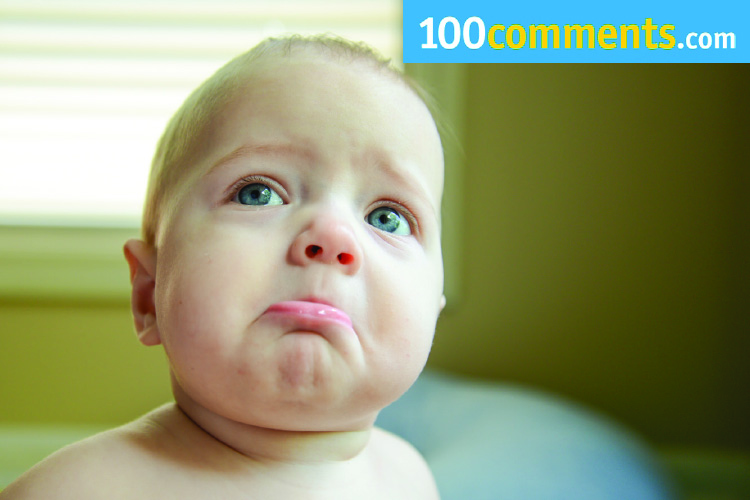My clingy lil’ thing
}My second child is going to be three this December and for most of his 30 months, he has been an extremely cranky and clingy little boy, compared to his five year old brother who is cheerful and happy all the time! Could my younger baby be having depression? Is that even possible at such a young age?~
Young children’s clingy stages start when they are around 6 months old, peak at toddlerhood, and may be revisit when they enter preschool, where it’s called separation anxiety. When babies began to develop the motor skills to explore around independently, they start to realize there’s a whole world out there apart from mom. Becoming aware that their mother could leave them at any moment is a huge shock. The only way to prevent this is to try and keep their mother in sight at all times by clinging and crying.
In order to achieve healthy independence, children must first feel secure and know their parents are there to care for them. However, parents are almost always the ones who initiate separations with their children. Child-led separation can’t happen if parents follow their children around.
Having parents remain in one place however, when their children are in safe play environments, help the children to know exactly where parents are and allow them to separate with confidence when they’re ready. Developing goodbye rituals help create order around the departure for both parent and child. Sneaking out quietly can break children’s trust in parents. Parents could also provide an “estimated time of return”. While a child this age doesn’t understand three hours, parents can say “I’ll be back after snack time” and do your best to return when promised.
The hygiene hypothesis
}I read somewhere that it’s actually not good for children to be too clean and germ-free all the time for that’ll make their immune system weak. Is there any truth to that? If it is true, then how clean should a three year old be to not endanger his immune system nor his health?~
I must agree that your statement is true to some extent as based on the “hygiene hypothesis”, which states that, a lack of early childhood exposure to infectious agents and symbiotic micro-organism such as our gut flora or friendly bacteria also known as probiotic, increases susceptibility to infection and allergic diseases by suppressing the natural development of the immune system. In particular, the lack of exposure is thought to lead to defects in the establishment of immune tolerance, thus increasing the incidence of allergic diseases such as asthma, eczema, hay fever and autoimmune diseases.
Evidence has shown that smaller families provided insufficient microbial exposure partly because of less person to person spread of infections. On the other hand, more epidemiological studies continue to confirm the protective effect against infection and allergic diseases within larger families. The same goes with growing up on a farm, for that symbiotic relationship with nature seems to help build immunity through natural exposure with their surrounding, triggering the immune system through the contact with multiple natural organisms, preparing it for invasion by harmful organism. However, don’t confuse this with polluted environment especially cigarette smoke, dirty or contaminated water, and other toxic pollutants in your child’s environment.
Our immune system is complex, requiring many different things to perform properly, and is dependent on external factors like environment, exercise, nutrition and stress levels. Thus, ways to boost and improve your child’s immune health are based on these same factors which include vaccination, regular exercise, adequate rest and sleep, healthy lifestyle, healthy eating habits, good and effective stress coping mechanism, loving and supportive family as well as outdoor activities and enjoying your natural surrounding so as to be in symbiotic contact with the natural friendly microbes for better immunity development.
















